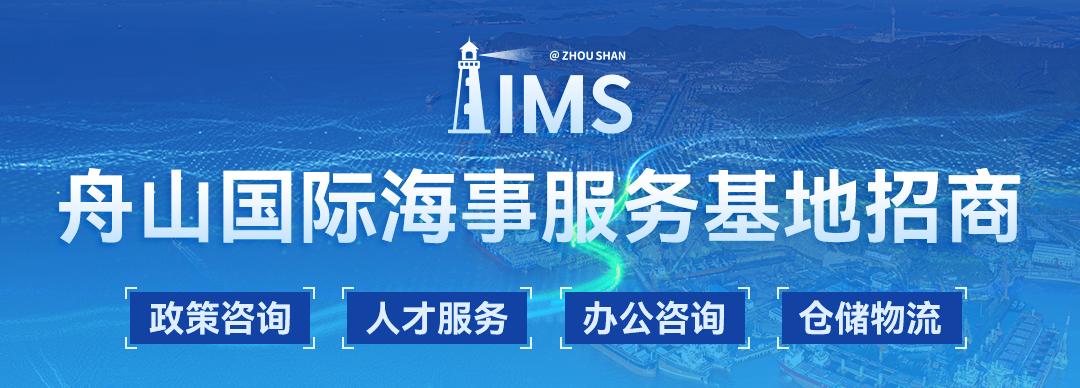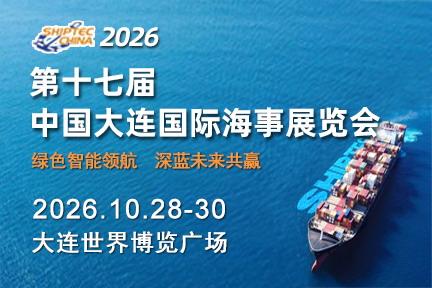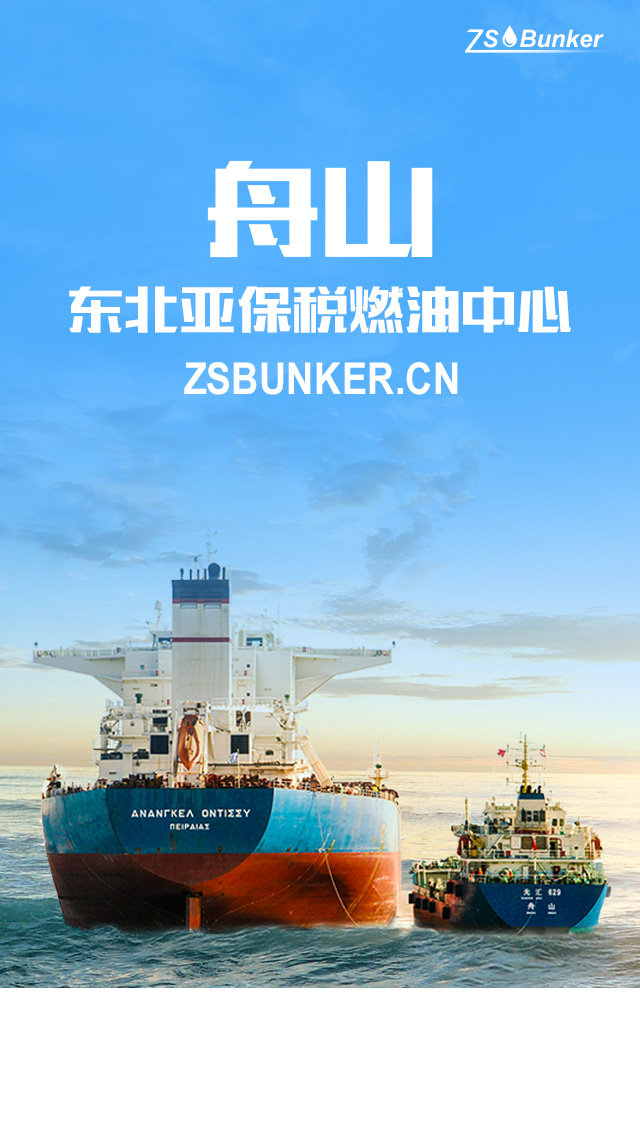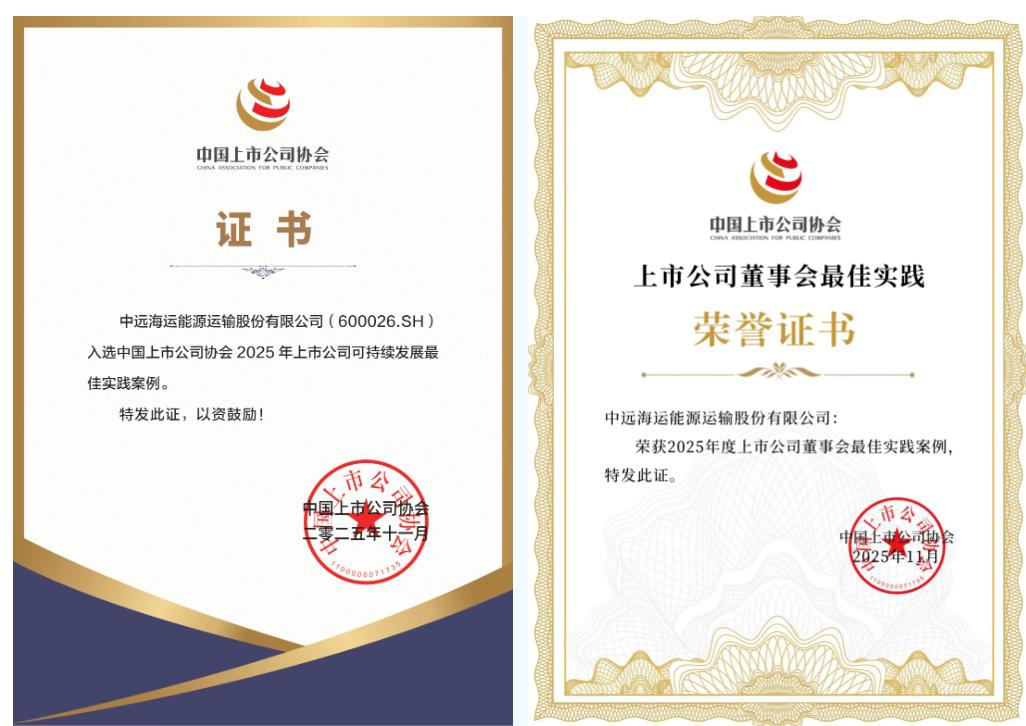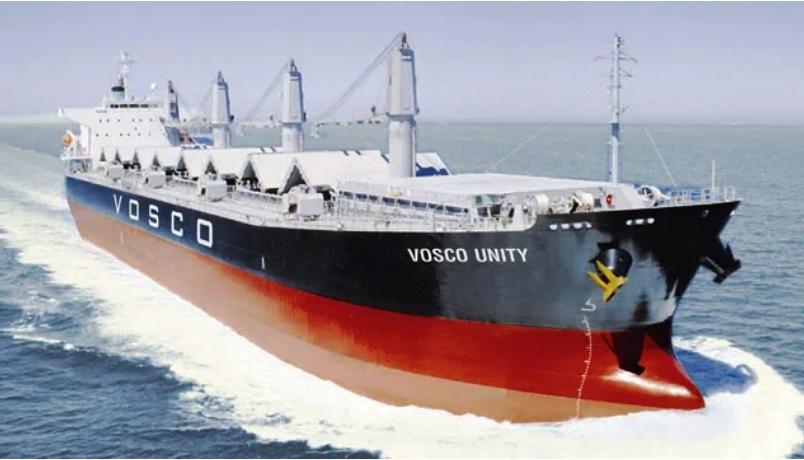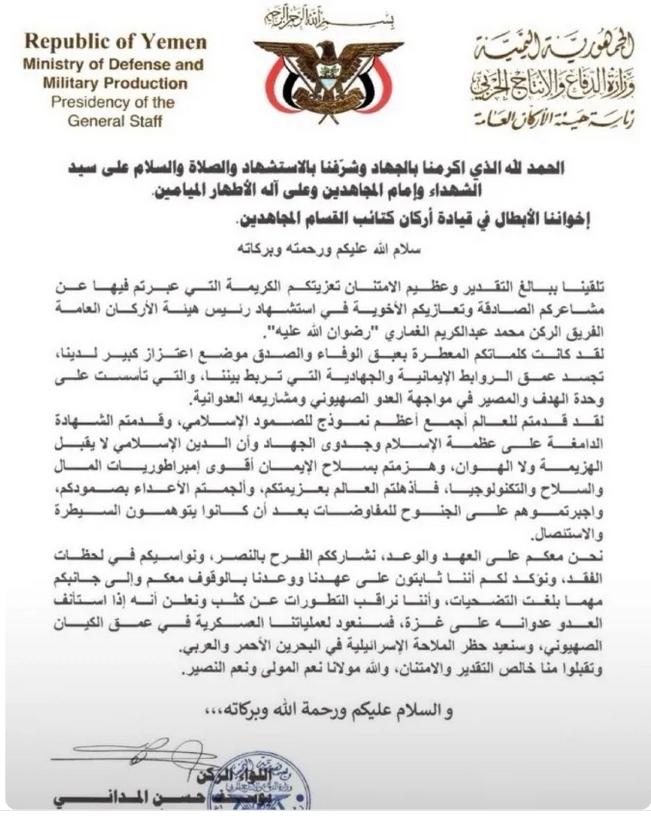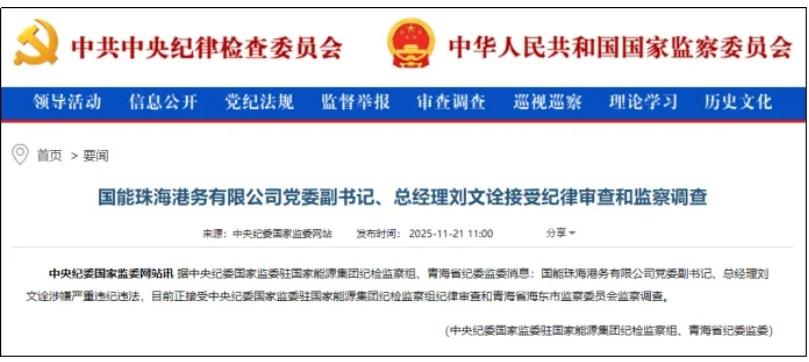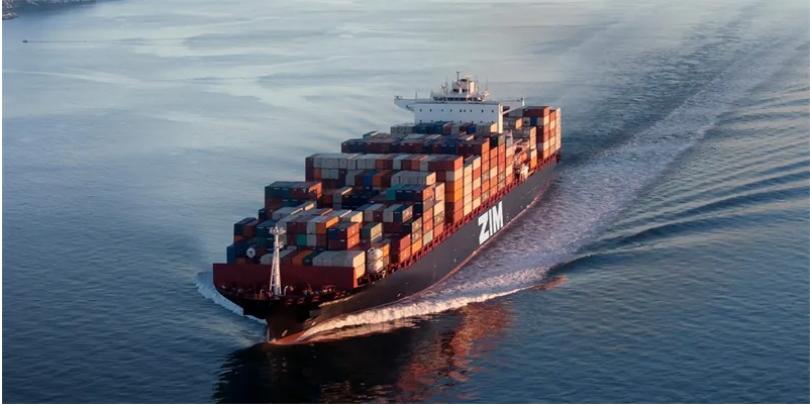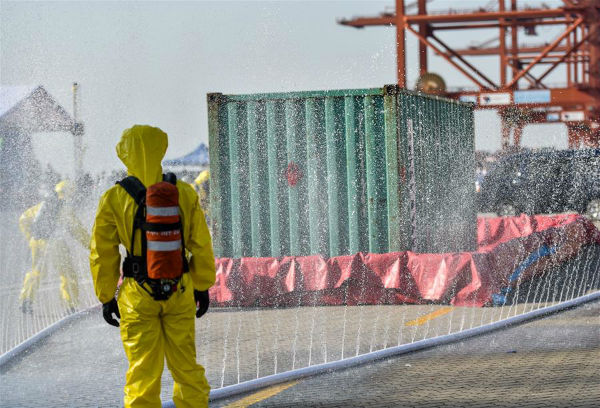
近期有不少人咨询船吊的问题,这个也从侧面反映了小船的复杂性。其中之一,承租人在安排起吊重大件货物之前,没有给予出租人通知,提醒出租人货物将达或超过船吊的安全负荷;装卸工人在操作过程中不小心,最终造成了船吊损坏。从出租人所提供的事实中得知,重大件货物的重量为20.5吨,而出租人不保证的船吊的最大安全负荷为20吨。在装载此货物前,承租人未提供货物的详细信息,事后提供的经证实还是错误的。
在这种情况下,承租人是否存在违约行为呢?该重大件货物给船吊造成了损坏,是否属于危险货物呢?很显然,如果承租人存在违约行为,或者该重大件属于危险货物,那么承租人将得为船吊损坏的负责。
通常认为的危险货物为易燃易爆有毒,或者存在腐蚀性放射性等货物才算是危险货物,一件普通的设备是否能算是危险货物吗?本文先从常见的标准条款说起,NYPE46格式并没有对危险货物作规定,仅在第24-28行,对合法货物进行了简单描述,如下:
24…to be employed, in carrying lawful merchan-
25 dise,including petroleum or its products, in proper containers, excluding______
26 (vessel is not to be employed in the carriage of Live Stock, butCharterers are to have the privilege of shipping a small number on deck attheir risk,
27 all necessary fittings and other requirements to be for account ofCharterers), in 28 such lawful trade
用于装运包括石油或其他产品在内的,以适当方式包装的合法货物,但不包括________(船舶不得用于装运活动物,但承运人可以在甲板上装运少量活动物,并承担其风险及负责所有必要的设备和其他必需品)
NYPE93格式的,相对详细得多,在第4条对危险货物/除外货物作了详细规定:
4.Dangerous Cargo/Cargo Exclusions
(a)the vessel shall be employed in carry lawful merchandise excluding any goods of a dangerous,injurious, flammable or corrosive nature unless carried in accordancewith the requirements or recommendations of the competent authorities of thecountry of the Vessel's registry and of ports of shipment and discharge and ofany intermediate countries or ports through whose waters the Vessel must pass.Without prejudice to the generality of the foregoing, in addition the followingare specifically excluded: livestock of any description, arms, ammunition,explosives, nuclear and radioactive materials, xxxxxxxx
(b)in IMO- classified cargo is agreed to be carried, the amount of such cargoshall be limited to xxxxxx tons and the Charterers shall provide the Masterwith any evidence he may reasonably stowed in accordance with IMO regulations,failing which the Master is entitled to refuse such cargo or, if alreadyloaded, to unload it at the charterers' risk and expense..
4. 危险货物/除外货物
(1) 船舶应被用于运输合法货物,不包括任何危险性,伤害性,易燃性或者腐蚀性的货物,但根据船舶登记国,装货港,卸货港和船舶必经水域的港口或国家的主管当局的要求或者指示运输的除外。此外,在不影响上述一般原则的情况下,下列货物应明确除外:任何品名的牲畜,武器,弹药,爆炸物,核材料和放射性材料,____________。
(2) 如果协议运输国际海事组织所属的货物,该货物的数量不应超过________吨,承租人应向船长提供其可能合理要求的表明货物已经根据国际海事组织的规定进行包装,加标,装船和积载的任何证据,否则,船长有权拒绝该货物,或者,如果货物已经装船,船长有权将货物卸下,并由承租人承担风险和费用。
Baltime格式在第2条,32-36行简单描述如下:
Nolive stock nor injurious, inflammable or dangerous goods (such as acids, explosives,calcium carbide, ferro silicon, naphtha, motor spirit, tar, or any of theirproducts) shall be shipped.
船舶不得装运活牲畜及有害、易燃或危险货物(如酸性物质、炸药、电石、
硅铁、石脑油、汽油、焦油,或其任何制品)。
此外,《海牙规则》第四条第六款规定如下:
Goods of an inflammable, explosive ordangerous nature to the shipment whereof the carrier, master or agent ofthe carrier has not consented with knowledge of their nature and character, mayat any time before discharge be landed at any place, or destroyed or renderedinnocuous by the carrier without compensation and the shipper of such goodsshall be liable for all damage and expenses directly or indirectly arising outof or resulting from such shipment. If any such goods shipped with suchknowledge and consent shall become a danger to the ship or cargo, they may inlike manner be landed at any place, or destroyed or rendered innocuous by thecarrier without liability on the part of the carrier except to general average,if any.
承运人、船长或承运人的代理人对于事先不知性质而装载的具有易燃、爆炸或危险性的货物,可在卸货前的任何时候将其卸在任何地点,或将其销毁,或使之无害,而不予赔偿;该项货物的托运人,应对由于装载该项货物而直接或间接引起的一切损害或费用负责。如果承运人知道该项货物的性质,并已同意装载,则在该项货物对船舶或货载发生危险时,亦得同样将该项货物卸在任何地点,或将其销毁,或使之无害,而不负赔偿责任,但如发生共同海损不在此限。
对比这些常见的条款法规,只有NYPE46没有特别说明dangerouscargo除外;而合约的任何措辞都有其特殊含义,如Mustill勋爵在贵族院判例,CharterReinsurance Co Ltd v Fagan [1996] 2 Lloyd’s Rep.114案中第116页判决书中所说:我相信,绝大多数的措辞,在正常对话中的主要意义上,都有其自然含义。当然,有时候直接诉诸此种意思是不合适的。因此,这个词语可能来自于专业词典,在日常对话中并没有什么意义。或者,这个词语在日常对话中是一种含义,而在专业词典中又是另一种含义。并且相关内容可能表明,文件的作者的意图看起来是后面一种。
Ibelieve that most expressions do have a natural meaning, in the sense of theirprimary meaning in ordinary speech. Certainly, there are occasions where directrecourse to such a meaning is inappropriate. Thus, the word may come from aspecialist vocabulary and have no significance in ordinary speech. Or it mayhave one meaning in common speech and another in a specialist vocabulary; andthe context may show that the author of the document in itappears intended it to be understood in the latter sense. Subject to this,however, the enquiry will start, and usually finish, by asking what is theordinary meaning of the words used.
因此,“dangerous cargo”这个措辞就显得不可或缺。那么接下来就来了解一下和“dangerous cargo”相关的几个重要问题。
1、 “dangerous cargo”的含义
通常理解,易燃易爆易泄露,或者存在放射性等的货物即为危险货物。现实
中特殊货物可能是危险的,尽管其类型的货物通常不被认为是如此,如果其特有的特征(包括相关的自身包装在内)危及船上或船上的其他货物。无论是普通法还是美国的COGSA第4(6)条(或第4条,海牙规则6或海牙-维斯比规则),都是如此。例如,在The AthanasiaComninos案中所涉及的异常高炉煤炭;Micada v.Texim 案中含有异常高水分含量的铁精矿;The Fiona案中燃油释放易燃蒸气;The Giannis NK案中感染卡普拉甲虫的货物等都归于危险货物的先例。可以参《Time Charter》Chapter 9-LawfulMerchandise,9.9,如下:
9.9 Aparticular cargo may be dangerous, despite the fact that cargoes of its typeare not usually so regarded, if its own particular characteristics, includingwhere relevant its own packaging, endanger the ship or other cargoes on board.This is true both at common law and under Section 4(6) of
通常不危险的货物如果装载条件不合理,可能会变成危险。例如,如果货物潮湿,许多类型的货物容易受热和自燃。具有危险性质的货物与仅仅遭受固有危害的货物之间的区别并不总是易于提取,但这一点很重要,因为虽然固有瑕疵构成对因损失或在载运过程中恶化而引起的损害索赔的辩护的运输本身并不涉及托运人的任何违反义务,或赋予承运人任何追索权。据指出,原则上,装运货物的状况可能导致人员受伤或船舶或其他货物损坏,甚至造成严重的航次延误,因此属于危险类别货物,并且由于现在确定发出通知的义务是绝对的,因此如果没有给出其实际情况的通知,托运人或承租人将承担严格责任,除非其承运人的实际情况应该是明显的。但是,必须承认这些判决并未完全证实这一观点。这方面的可以参《Voyage Charter》Chapter 6-The Cargo, 6.57,如下:
Goods notnormally dangerous may become so if their condition on loading is unsound. Forexample, many types of cargo are liable to heating and spontaneous combustionif they are damp. The distinction between goods which are of a dangerouscharacter and goods which merely suffer from inherent vice is not always easyto draw, yet it is important because whilst inherent vice constitutes a defenceto a claim for damages arising out of loss or deterioration in the course ofcarriage it does not of itself involve any breach of duty by the shipper, or confer any right of recourse onthe carrier. It is submitted that in principle where the condition of the goodson shipment is such that they are liable to cause injury to persons or damageto the ship or other goods, or even serious delay to the voyage, they fallwithin the category of dangerous goods, and since it is now established thatthe obligation to give notice is absolute, the shipper or charterer is strictlyliable if notice of their actual condition is not given, unless their actualcondition should have been apparent to the carrier. However, it must beaccepted that the decisions do not fully bear out this view.
无法对危险物品作出详尽的定义,但其中包括由于其易燃,易爆,腐蚀性,有毒或其他特性而可能对船舶或其他货物造成人身伤害或人身伤害的货物有关的损害可能包括污染造成的损害以及机械损害。因此,在The Berge Sund案中,上诉法院原则上接受,在船舶适合装载下一批货物之前,船舶所不知道的货物需要船舶进行大量的净化处理,可能等于危险货物。然而,这个问题是一个程度的问题,很显然,航行后清洁的必要性不会使货物变得危险。关于实质上的危险,为了普通法义务的目的,出现“危险货物”的含义与“海牙规则”第IV条第6条中的“易燃,易爆或危险性质的货物”非常相似(如果不完全相同)。但是,危险货物的普通法概念可能更为广泛,因为它不仅包含物理危险的货物,以及那些法律上危险的物品,因为这些物品可能会使船舶承受法律或政治风险,造成拘留或被没收。参《Voyage Charter》Chapter 6-The Cargo, 6.52,如下:
It is notpossible to give an exhaustive definition of dangerous goods, but they includegoods which, as a result of their inflammable, explosive, corrosive, noxious orother properties are likely to cause personal injury or physical damage to theship or other cargo. The damage in question may consist of damage bycontamination as well as mechanical damage. Thus, in The Berge Sund,22 theCourt of Appeal accepted in principle that shipment of a cargo which, unknownto the shipowner, would necessitate extensive decontamination of the shipbefore she was fit to load her next cargo, might amount to the shipment ofdangerous cargo. However, the question is one of degree, and it is clear thatthe mere necessity to clean after the voyage cannot render the cargodangerous.23 With regard to physical dangers the meaning of “dangerous goods”for the purpose of the common law obligation appears to be very similar, if not identical, to “goods of aninflammable, explosive or dangerous nature” in Article IV rule 6 of the HagueRules.24 However, the common law concept of dangerous goods is potentiallywider, since it embraces not only goods which are physically dangerous but also those which are legally dangerous inthat they are likely to subject the ship to legal or political risks, causingdetention or confiscation.
为了“合法”,货物必须能够在不违反在装货港和卸货港生效的当地法律的情况下装载,运输和卸货(也许还有船旗国的法律和运输合同)。“商品”一直被认为是通常从装货港运出的那种货物。货物不会超出“商品”的定义,仅仅是因为它们不是通常由商人交易的类型-例如弹药或政府战争备品-除非必须赋予该种用法,否则应该排除它们。参《Voyage Charter》Chapter 6-The Cargo, 6.45,如下:
To be“lawful” the cargo must be such that it can be loaded, carried and dischargedwithout breach of the local law in force at the loading and discharge ports(and perhaps also the law of the ship’s flag and the proper law of the contractof carriage). “Merchandise” has been held to comprise goods of the kindcustomarily shipped from the loading port. Goods will not be outside thedefinition of “merchandise” merely on the grounds that they are not of the typeordinarily traded by merchants—such as munitions or government warstores—unless there is a usage to the effect that they should be excluded.
对于危险的普通法意义的延伸,《Time Charter》在9.14中解释到;根据普通法,不会对船舶或其他货物造成直接或间接物理威胁的货物,如果它们可能会触发法律障碍,导致船舶或其他货物被延迟或扣留,可能仍然被归类为危险品。
Extension of the common law meaning of“dangerous”
9.14 At common law, goods that present nophysical threat, direct or indirect, to the ship or to other cargo are probablystill to be classified as dangerous if they threaten to trigger legalobstructions that will cause the ship or other cargo to be delayed or detained(although not, in the absence of legal obstacles, if they merely threaten delay: The Darya Radhe [2009] 2 Lloyd’s Rep. 175).Although the House of Lords did not find it necessary to confirm this in The Giannis NK, the courts belowaccepted that it was established by cases such as Mitchell Cottsv. Steel [1916]2 K.B. 610. It is suggested that this goes beyond the United StatesAct/Hague(-Visby) Rules notion of dangerous cargo (as Hirst, L.J., held, obiter, in The Giannis NK, and Tomlinson, J.,held in The Darya Radhe,above, at [25]), a view shared by VoyageCharters, paragraphs 6.62, 85.431 and 85.434, and Scrutton on Charterparties, page 445and n. 284, although the contrary view is expressed in Bills of Lading, paragraph 10.323.
因此货物是否是安全的,必须在实质上不会对船舶或其它货物造成损害,同时在法律上也必须是安全的。如果给船舶或船上的其它货物造成损失,或者不符合法律法规,则货物为危险货物。
2、 给予警告的要求
有时候,等于承运人而言,货物的危险性质,如果托运人不如实告之的话,那么是完全隐瞒的。如Bamfield v.Goole&Sheffield Transport案,其中高度危险的硅铁按照“普通货物”的说明发货。有时候,承运人甚至可能会被误导危险,例如在Kapitan Sakharov案,集装箱内存在易爆物品的隐患。在这种情况下,很明显违反了给予通知的要求。然而,在许多情况下,例如Brass v. Maitland本身,承运人就货物的性质提供了一些准确的信息,问题在于信息是否充足。这里的指导原则是,托运人或承租人所提供的信息必须使普通经验丰富且技术熟练的承运人能够理解运输中涉及的风险的性质并防范这些风险。当他自己可以很容易地发现货物时,承运人“无权期望任何有关货物性质的通信”。另一方面,承运人预计不会是或者打电话给专家化学家,或者诉诸于“不符合通常的商业经营过程的调查”,但是他无疑会期望咨询海事组织出版物和货物处理手册以及有关出租人通常咨询的货物特性的其他信息来源。承运人通常知道货物具有危险特性,但承运人声称他应该注意到其运输中涉及的某些特殊危险。
在TheAtlantic Duchess [1957] 2 Lloyd’s Rep. 55案中,承租人安排AtlanticDuchess轮从Abadan装载原油或燃料油和/或柴油和/或瓦斯油和/或石油馏分”的货物到Swansea,合同条款规定:
30.Chamber of Shipping War Risks Clauses as per attached slip to apply to thischarter-party, and all bills of lading issued under this charter-party tocontain the new Jason Clause, Both-to-Blame Collision Clause and Clause Paramount.
该轮装载了丁烷化原油(注入了额外丁烷的原油)和由船长签署的提单,承认收到了12,001吨的丁烷化原油。但卸港卸货期间,进行压载的时候发生火灾和爆炸。出租人声称承租人在运输未经批准的货物时违反租船合同。
Pearson法官认为,出租人未能证明承租人载运的丁烷化原油货物不在合同描述范围内,或者原油的丁烷化有任何特殊危害;尽管该轮的卸货和压舱方法不是必要的,而且可以更安全地进行操作,但证据并没有确立一种通用的做法,采用这种做法将会造成离港;没有证明船舶压载方的任何船员打破了火炬或点燃了香烟,但有理由推断他们的安全预防措施有些失败;因此出租人的索赔不成立。
此外,如果丁烷化原油不能成为租船合同意义上的“原油”,那么它就不能成为授权货物;第30条对适用于租船合同的条款和提单中应包含的条款作了区分,因此,海牙规则第4条第6款没有成为运输合同的一部分。
Held, that shipowners had failed to prove that the butanized crude oil cargo shipped bycharterers was outside the contractual description, or that butanized crude oilinvolved any special hazards; that, although the method of discharging andballasting the Atlantic Duchess was not a necessary one and the operation couldhare been performed more safely, the evidence did not establish a generalpractice from which the method adopted would constitute a departure; that itwas not proved that any member of the ship's ballasting party broke a torch orlit a cigarette, but it was reasonable to infer that there was some failure ofsafety precautions on their part; and that therefore shipowners' claim failed.
-Held, further,that, if butanized crude oil failed to be "crude oil" within themeaning of the charter-party, it could not otherwise be an authorized cargo;that Clause 30 drew a distinction between clauses which were to apply to thecharter-party and clauses which were to be contained in the bill of lading, andthat, therefore, Art. IV, r. 6, did not become part of the contract ofcarriage.
对这方面的,也可以参《Voyage Charter》Chapter 6-The Cargo,6.55和 6.56,如下:
6.55 InThe Athanasia Comninos,30 where the contract was for the carriage of “coal”,and the carrier contended that the coal shipped was particularly hazardous inthat it had a propensity to emit unusually large quantities of methane gas and,therefore, that a special warning of its dangerous characteristics wasrequired, Mustill J. approached the question as follows:
Carriage ofcoal involves hazards greater than those associated with inert goods; but theyare hazards which could be overcome if the shipowner had the necessaryknowledge, skill and equipment: and this is so even if … the particular cargobrings with it a risk greater than that which is usually associated with thecarriage of coal. In such a case, I consider that it is not correct to startwith an implied warranty as to the shipment of dangerous goods and to try andforce the facts within it; but rather to read the contract and the factstogether, and ask whether, on the true construction of the contract, the risksinvolved in this particular shipment were risks which [the owner] contracted tobear.
He rejectedthe charterer’s argument that, since the carrier had consented to the shipmentof coal, and since the propensity of coal to emit methane gas is well known inthe trade, the carrier accepted all the risks of carriage, however gassy thecoal might be. He considered that if the coal actually shipped had a propensityto emit methane in such quantities as to render the risks involved in itscarriage different in degree from those involved in the carriage of coalcargoes in general, and if the difference in degree was such as to approximateto a difference in kind, the carrier could not be said to assent to the risksin question. He found, however, that the damage was caused by failure to complywith safety standards of the kind which should have been adopted in thecarriage of any cargo of coal, with the result that, as in The AtlanticDuchess, the claim failed.
6.56 Acase on the other side of the line was The Fiona, where the cargo wasdescribed, with complete accuracy, as “fuel oil” but this was held inadequatenotice on the grounds that, at the time of carriage (1988), the risks attendanton the carriage of certain types of fuel oil were not generally known.Similarly, it has been held that, although shipowners were generally aware ofcertain dangerous characteristics of sulphur, the highly corrosive propertiesof wet sulphur were not generally known to shipowners in the early 1980s, andthat, therefore, a special notice of this characteristic should have beengiven.
如果货物本身的特性不为人所知,那么承租人或者发货人必须提供必要的信息,通知出租人/船长这方面的信息,以便采取适当的措施。但如果货物为出租人所熟知,且属于合法的货物,那么由于出租人自己方面的原因,导致了损害,则出租人得自己承担损失。
对于这个警告的问题,可以参《Time Charter》9.11如下,如果船长知道了它的特殊性质,该货物可以安全运载;但如果船长没有得到这些信息,那么将可能是危险的。
Lack of warning to themaster
9.11 A cargo that can be carried safely ifthe master is made aware of its particular characteristics may be dangerous ifhe is not given that information.
因此,假如承租人事前提供了重大件货物的详细信息,船长知道了货重超过船吊最大的安全负荷,那么将会采取必要的措施,比如委派能力最强的船员来操作,或者采取并吊的方式避免船东受到损坏。但是由于船长没有得到货物真正的信息,导致装卸工人在作业的时候造成了船吊损坏,因此针对这件特殊货物,对船舶而言是危险的。
3、 法律上的危险
NYPE46格式所说的,合法商品可能包括军事备品和军火。但是,如果货物的
装载量违反当地法律,或者不能合法在指定的卸货港卸货,则货物不会成为合法商品。因此商品也必须遵守船旗的法律和租船合同的管辖法律合法。禁止载运非法的商品的责任是绝对的。参《Time Charter》Chapter 9-Lawful Merchandise,9.1,如下:
Lawful merchandise may include militarystores and munitions. But goods will not be lawful merchandise if their loadingamounts to a breach of the local law nor if they cannot lawfully be dischargedat the nominated discharge ports. It is suggested they must also be lawfulunder the law of the ship’s flag and the governing law of the charter.The prohibition upon unlawful merchandise is ‘absolute’.
也可以参6.42,如下:
A cargo falls within the scope of the implied term relating todangerous goods not only if it is physically hazardous, but also if it isunlawful and likely to subject the ship to delay, detention orseizure.
在The “Dodecanese” [1953] 2 Lloyd’sRep. 47案中,以Baltime格式。承租人该轮在地中海港口装有弹药和其他爆炸物,并命令将这些物品运往埃及Adabiya的英军,尽管承租人知道这是埃及当局禁止的。在遵守这些命令并被埃及当局列入黑名单之后,这艘船再次在Port Tewfik装载了亚喀巴的军事备品,但是她在航行前遭到破坏。因为她被列入黑名单,当局推迟了她的修理工作,所以比航次应该完成的时间长了26天。商事法院的Pilcher法官认为,由于装载给Adabiya的货物不能在指定港口卸货,违反了当地法律,因此它们不是“合法商品”,因此承租人有责任为所造成的26天的延误支付赔偿金。
In myview, for the reasons which I have set out, the umpire was right in findingthat the charterers committed a breach of the charter-party in that they failedin all the circumstances to load the vessel with lawful merchandise, but wrongin so far as he arrived at that conclusion upon the authority of Vanderspar & Co. v. Duncan & Co.,sup.
在The “GreekFighter”[2006] EWHC 1729 (Comm)案中,2001年12月,该轮及其货物在Khorfakkan被阿拉伯联合酋长国海岸警卫队(“阿联酋”)拘留,并在被拘留期间被阿联酋当局没收并在2003年3月12日的公开拍卖会上出售。阿联酋当局说,拘留并随后没收和销售船舶及其货物是有正当的,因为该船上装有伊拉克原产地的油和/或其持有的法尔石油公司正在试图走私或处理违反联合国制裁。
案中的承租人认为在Khorfakkan附近用船舶作为一个储油设施。他们坚决否认他们违反联合国的禁令将伊拉克石油转移到了这艘船上。在该船被扣留期间,承租人还曾在阿联酋法院追索了一些旨在释放货物的索赔。
出租人,虽然没有在阿联酋提起诉讼,但也试图通过谈判劝说阿联酋当局释放他们的船舶。出租人也质疑海岸警卫队的指控,称承租人已将伊拉克石油转移到了该船上。然而,当他们在2003年7月开始这些诉讼时,出租人就他们提供的证据认为,承租人至少有一部分货物来自伊拉克,并且正在被承租人非法处理,违反了联合国禁运和石油换食品计划和阿联酋的法律。
对于责任问题,高等法院的Colman法官在第283段判决书中说到,装载违禁品油,将违反第4条规定载运“非法商品”,因此违反了期租合同。Colman法官发现承租人负责从海湾王子转运大约130公吨伊拉克原油,并打算从该船转移更多的石油,尽管承租人没有显示出该石油的来源。Colman法官认为条款4的含义是承租人是为了保证货物的合法性,而不仅仅是承诺货物在他的信念下是合法的。条款规定如此理解是因为其显而易见的目的。出租人需要进入他可以信赖的承租人的位置,可以预见,他可以获得所有相关信息,以确保船舶需要装载的货物不会使出租人面临损失由于船舶因违反当地法律而被扣留,罚款或延迟。换句话说,这是绝对的保证。
To load on board the vessel contraband oil would be toload "unlawful merchandise" contrary to clause 4 and would thereforeamount to a breach of the Time Charter. I have found that Fal was responsiblefor the transhipment of about 130 mt of oil of Iraqi origin from the GulfPrince and intended that further oil should be transferred from that vessel,albeit Fal is not shown to have known the origin of that oil. Certainly Ownersdid not. The sense of clause 4 is that the charterer is taken to warrant thelawfulness of the cargo and not merely that an undertaking is given that thecargo is lawful to the best of his belief. That the provision is to be sounderstood arises from its obvious purpose. The shipowner requires to be put into the position wherehe can rely on the charterer, who, it can be anticipated, has access to allrelevant information, to ensure that the cargo which the vessel is required toload will not expose the shipowners to loss due to the vessel being detained orfined or otherwise delayed on account of a breach of the local law. In otherwords, this is an absolute warranty.
经过长达百页的分析,Colman法官认为出租人很好地对承租人违反合同第4条提供合法货物的绝对责任,违反第28条提供了有害货物,及依据第13(a)条明确的赔偿权,索赔成功。
在The “Giannis NK”[1998] 1 Lloyd’s Rep.337贵族院判例中,1990年11月18日,该轮在Dakar港口装载了一批萃取的花生颗粒,并将其装在第4舱;其它货舱在Togo的Lome和Abidian先前装货港装了小麦颗粒。装载花生颗粒之后进行了熏舱,并颁发SGS签发的证书。该船越过大西洋到达她在波多黎各的第一个卸货港San Juan,部分谷物颗粒货物已卸下,然后前往多米尼加共和国的Rio Haina继续卸货。该轮于12月2日抵达,并于12月6日接受了当地农业部门的检查。货物中发现活虫和棚皮,船舶被隔离。该船被熏蒸了两次,但在每次熏蒸后,仍在船上的舱内发现了活虫。12月21日,该船被命令离开港口,同时在地上的坚果货物和小麦货物仍在船上。当局表示他们已经找到他们称之为“trogoderma SP”的东西,一种类型的灵芝,当她抵达她的目的地时,它被接受了,在这艘船中卡普拉甲虫确实存在。
卡普拉甲虫是一种不寻常的昆虫。它起源于热带地区,许多不流行的国家认为这是不可取的,因此他们采取了认真的措施来阻止其侵入。这些国家中有多米尼加共和国和美国。他们对卡普拉甲虫的主要反对意见是它的幼虫形态时的贪婪。在适当的条件下,甲虫可以迅速繁殖,而且如果它们存在于其中,则幼虫会迅速吞食货物或饲料库。美国农业部上了船,并将标本送去进行实验室检查。这些被确定为卡普拉甲虫,并于1月31日向出租人发出通知,要求他们要么将货物返回原产国,要么将其倾倒在距离海岸25英里的海域。2月4日至12日期间,该船出海并抛弃了花生颗粒和余下的小麦。
出租人通知承租人,他们认为这种侵害源自根据租船合同运送的花生颗粒货物。3月1日,收货人开始对出租人和发货人提起诉讼。
出租人找承租人和发货人索赔,承租人不参与诉讼。发货人否认出租人损失的原因是在达喀尔装载的货物中的卡普拉甲虫。他们认为,如果在花生颗粒运输时卡普拉甲虫已经在船上的可能性至少相同。
出租人声称,由于它含有卡普拉甲虫,花生颗粒是危险货物。他们认为,甲虫对于进入隔离区并需要熏蒸的船舶构成了实际的危险,因为它可以为其他承租人和船上其他必须在海上倾倒的小麦货物提供进一步的服务。因此,出租人声称,他们可以根据海牙规则从发货人身上追偿。海牙规则“第6条被纳入以提单为证明的运输合同中,据此运送花生颗粒或者暗示担保发货人不会运输危险货物。索赔涉及拖延,延误期间发生的燃料费用,熏蒸和其他费用以及赔偿多米尼加诉讼中可能对收货人承担的任何赔偿责任。
该案最终上诉到贵族院。贵族院的Berwick勋爵在第341判决书中说到,商事法院的Longmore法官以令人钦佩的清晰和简明的判决([1994] 2 Lloyd'sRep.171)认定,货物在装运时具有危险性,理由是它可能导致通过在海上倾倒装载在同一艘船上的其他货物的损失。Hirst勋爵在上诉法院支持这一调查结果:[1996]1 Lloyd's Rep. 577。Berwick勋爵他完全同意他们的推理。因此,没有必要考虑进一步的论点,即即使货物不会对船舶或货物造成任何实际危险,但货物可能具有危险性质,但在法律上是危险的,因为它们有可能导致延迟装运和货物通过一些当地法律的运作。
Mr. JusticeLongmore, in an admirably clear and succinct judgment ([1994] 2 Lloyd's Rep.171), found that the ground-nut cargo was of a dangerous nature on shipment, onthe ground that it was liable to give rise to the loss of other cargo loaded onthe same vessel by dumping at sea. This finding was upheld by Lord JusticeHirst in the Court of Appeal: [1996] 1 Lloyd's Rep. 577. I find myself incomplete agreement with their reasoning. Accordingly it is unnecessary toconsider a further argument that goods may be of a dangerous nature even thoughthey do not present any physical danger to ship or cargo, but are"legally" dangerous in the sense that they are liable to cause delayto ship and cargo through the operation of some local law.
Berwick勋爵在第344页判决书中认为,依海牙规则第四条第六款的解释,托运人得对运载受污染的货物承担全部后果。并引援首席法官Campbell勋爵在Brass v. Maitland(1856)案中所说:如果一般船舶的所有人承诺他们将收到货物并将其安全运送并运往目的港,我认为托运人承诺他们不会在货物中交付货物包裹危险的性质,那些代表出租人雇用的人可能未经检查合理地被认为是危险性质的,未明确表示其危险性。
Where theowners of a general ship undertake that they will receive goods and safelycarry them and deliver them at the destined port, I am of the opinion that theshippers undertake that they will not deliver, to be carried in the voyage,packages of goods of a dangerous nature, which those employed on behalf of theshipowner may not on inspection be reasonably expected to know to be of adangerous nature, without expressly giving notice that they are of a dangerousnature.
Berwick勋爵在第345页判决书中认为在普通法下,托运人承担运载危险货物的责任,当发生时,并不取决于他的知识或指导货物是危险的。Berwick勋爵认为托运人的赔偿责任无论是通过普通法的默示条款还是海牙规则第四条第六款,结果都一样。最终基于所给出的理由,驳回了托运人的上诉。
I am of theopinion that it should not. I agree with the majority in that case and wouldhold that the liability of a shipper for shipping dangerous goods at commonlaw, when it arises, does not depend on his knowledge or means of knowledgethat the goods are dangerous.
An incidentaladvantage of that conclusion is that the liability of the shipper will be thesame whether it arises by virtue of an implied term at common law, or underart. IV, r. 6 of the Hague Rules.
For thereasons mentioned earlier I would dismiss the appeal.
相反,在BungeS.A. v. ADM Do Brasil Ltda(The Darya Radhe) [2009] 2 Lloyd’s Rep. 175案中,在巴西的Paranagua装载了一批大豆,但承运人Bunge声称发现一些活的老鼠,导致产生了额外的费用;Bunge自身也是发货人,但对其它所有9个发货人提起诉讼,声称装货的时候附带了老鼠,导致货物不安全,索赔超过200万美金。但仲裁员认定,Bunge未能免除其举证责任,证明在装货的时候附带了老鼠;无论如何混有老鼠的货物不能被认为是危险货物。Bunge不服裁决,上诉;但被Tomlinson法官驳回。
For all these reasons as it seems to me Bungesimply lacked the factual findings on the basis of which it could hope to bringhome liability to the shippers on the footing that the cargo shipped wasdangerous. The arbitrators positively found that the cargo of SBMP did not posea physical danger to the maize cargo. It plainly posed no threat of damage tothe ship itself. The arbitrators made no finding that imposition of quarantineor dumping of the entire cargo was to be expected. They made no finding thatthe cargo was likely to involve the ship in unusual danger or delay, still lessthat such danger or delay would arise in consequence of the existence of somelegal impediment to the carriage or discharge of the cargo. In my judgment inthe light of their factual findings the arbitrators correctly applied the law.It may be that when they explained their reasoning they elided some of theconcepts which I have discussed above. It is possible that in para 79 the pointthat they were seeking to make is that the cargo, even with rats admixed, didnot have some intrinsic property such as being inflammable or explosive orcorrosive such as to render it likely to cause direct damage to the ship or toother cargo. That of course would not be conclusive of its ability to causephysical damage in an indirect fashion, or by“blighting” the other cargo with the risk of loss through dumping. But thereare findings which preclude a conclusion that the cargo had this quality. As tothe Mitchell, Cotts & Co principle,the arbitrators were quite right to say at para 80 of their reasons that it isinsufficient to demonstrate a breach to prove simply shipment of a cargo whichmight possibly be subject to some legal challenge at the discharge port. It isnot unusual for a cargo to be the possible subject of rejection or to give riseto a risk of arrest of the vessel by receivers. No attempt had been made beforethe arbitrators to demonstrate that shipment of the cargo in the condition inwhich it was shipped carried with it the risk of delay and expense in consequenceof the operation of some specific municipal law or regulation
For all these reasons I conclude that the arbitrators made no error oflaw but on the contrary came to the correct conclusion that Bunge could not establisha breach of contract, or liability under the Hague Rules, even assuming that itcould show that
one or more of the shippers was responsible for the introduction of oneor more rats.
4、 给予警示的必要性
“危险货物”这一表述方便地说明了发出通知的义务所适用的货物种类,但它曾遭到Mustill法官在The Athanasia Comninos 案中的批评,他指出通常不可能说抽象地看货物是否危险,因为这个问题通常取决于出租人对货物特性的了解以及他根据这些知识对货物进行的管护。普通法关于发出通知的义务的目的是使承运人能够作出知情的选择,以确定他是否将货物运输,并且如果他这样做,在运输过程中采取适当的预防措施,以便防止涉及的危险在他们的运输到可接受的水平。参《Voyage Charter》Chapter 6-The Cargo, 6.51,如下:
Theexpression “dangerous goods” is a convenient description of the category ofgoods to which the obligation to give notice applies, but it has beencriticised by Mustill J. in The Athanasia Comninos, who pointed out that it isoften impossible to say in the abstract whether goods are dangerous or not,since the question often depends upon the knowledge of the shipowner as to thecharacteristics of the goods and the care which he takes in carrying them inthe light of that knowledge. The purpose of the common law obligation to givenotice is to enable the carrier to make an informed choice as to whether hewill carry the goods and, if he does so, to take the appropriate precautions intheir carriage so as to keep the hazards involved in their carriage to anacceptable level.
在The “Agios Nicolas” [1968] 2 Lloyd’s Rep. 57案中,在1965年12月21日以Baltime格式签订,合同第2条规定:
No livestock nor injurious, inflammable or dangerous goods (such as acids,explosives, calcium carbide, ferro silicon,naphtha, motor spirit, tar, or any of their products) to be shipped.
12月25日,依据承租人指示该轮到Tuapse装载铁矿石。事实上,装载的是铁精矿,由于其水分含量过高是危险的货物,但该轮的船长被托运人误导。 1966年1月1日,船舶从Tuapse出发,但由于货物的危险性质,该船在1月6日不得不将货物转移,船长必须绕航到比雷埃夫斯,卸载货物,安装移动板并重新装载货物。1月19日,船离开比雷埃夫斯去她的目的地。出租人主张承租人他们需支付所有额外的费用,并且在比雷埃夫斯期间不得停租。裁判裁定承租人违反了第2条款,并裁定承租人应向出租人支付相关费用。
承租人不服裁决,上诉。
商事法院的Donaldson法官在第62页判决书中说,无论这是否正确,他认为这些货物必须被认为是危险的,危险在于货物并非如此。船长根据事实的发现向他提供了一种可以形容为不会移动货物,并且它被提供了标记为不会移动的货物证书。事实上,现在知道,至少在部分情况下,这是一种会移动的货物,至于其部分,它可能根本没有装载。总而言之,承租人所提供的是一只穿着干羊皮衣服的湿狼,没有任何可以让他注意到货物与它看起来完全不同的根本不同。在这种情况下,在Donaldson法官看来,货物是非常危险的。
Whether that is right or not, it seems to me that these goods must beconsidered as being dangerous. The danger consisted in the fact that the cargowas not what it seemed to be. The master, on the findings of fact, hadproffered to him what one might describe as a non-shifting board cargo and itwas offered, as it were, labelled as a non-shifting board cargo. In fact we nowknow that it was, at least as to part, a shifting board cargo and as to part itmay not have been loadable at all. In a word what he was being offered was awet wolf in a dry sheep's clothing and there was nothing to put him on noticethat the cargo was something radically and fundamentally different from thatwhich it appeared to be. In those circumstances it seems to me that the cargowas dangerous beyond all argument.
本案说明的一个问题是,装载某种货物,承租人必须清晰明确地通知出租人/船长,包括不限于提供货物的相关证书,比如精铁矿,镍矿等易液化的货物,承租人必须提供准确的TML等证书,以便出租人/船方采取足够的预防措施,最终使货物保持在一个可接受的安全状况。
5、 船长同意装载
与安全港口的情况类似,由于承租人或其代理人的指示,提供了错误的信息,导致船长听从了指示,装载了危险货物;但这并不影响出租人索赔的权利。可以参《Time Charter》Chapter 9-Lawful Merchandise,9.27,如下:当未经出租人,船长或出租人代理人知情同意的情况下进行危险装运的情况下,承租人的责任在第4(6)条第二部分规定的范围内产生。
Theliability of the charterers under the second part of Section 4(6) arises onlywhere the dangerous shipment was effected without the informed consent of theowners, master or owners’ agent. It was argued inChandris v. Isbrandtsen-Moller [1951] 1 K.B.240 that, the master having consented to the shipment in question, the ownershad no claim. Devlin, J., rejected the argument and held that, by consenting,the master was not waiving the rights of the owners in respect of the shipment.The judge pointed out that the silence of the third part of Section 4(6) as toliability of the shipper (or, by incorporation, the charterers) could not beused as a defence to the claim of the owners for breach by the charterers of anexpress exclusion in the charter of such cargo. The Act was not intended as acomprehensive code altogether supplanting the contract of carriage; rather, itcontrolled certain topics and remained silent on others, including theconsequences of shipping excluded cargo with the consent of the master, whichthe parties remained free to regulate for themselves by the terms of theircontract. To be entirely clear, it is suggested that there was plainly no claimunder Section 4(6) even if that fact did not exclude a claim otherwise arising.Where informed consent has been obtained, it will be necessary for the ownersto show either that the cargo fell outside the limits articulated in thecharter or that they can claim under the implied indemnity referred to belowand considered further in paragraphs 19.15 et seq., below.
也可以参《Voyage Charter》Chapter 6-The Cargo,6.46,如下:Devlin法官在Chandrisv. Isbrandtsen-Moller [1951] 1 K.B. 240案中,认为船长的同意是无关紧要的,因为他没有权力改变租船合同,他也不打算这样做。纳入“海牙规则”没有任何区别,因为不可能在第四条第(6)款中规定如果船长同意知道货物性质和性质的危险货物运输,则不应有权赔偿因运输造成的损失。然而,这项索赔不成立,因为出租人在意识到违约之后并未解除合同,而是肯定了这一点。因此,合同的所有条款继续适用,并且由于出租人要求赔偿延误履行的费用,而租约的滞期费规定初步适用,他们的索赔受滞期费率的管辖。
A charterexcluded shipment of “acids, explosives and ammunition or other dangerouscargo”, and contained a clause paramount. With the knowledge and consent of themaster, but not of the owner, the charterer shipped turpentine. The vessel wasdelayed for 22 days beyond the laydays at the discharging port, and all except6.5 days of that delay was caused by the shipment of the dangerous cargo. Uponlearning of the shipment the owner did not rescind the contract, but claimedand recovered freight at the charter rate, and demurrage for the 6.5 days. Theowner now claimed damages at large for the balance of the delay at thedischarge port, on the grounds that this delay had resulted from thecharterer’s breach in shipping dangerous cargo.
Devlin J.held (1) that the charterers were in breach of contract in shipping theturpentine, since this was a dangerous cargo within the ordinary meaning ofthose words, and the meaning of the words was not restricted to cargoes likeacids, explosives or ammunition.
(2) The master’s consent was irrelevant, since he had no authority to vary thecharter, nor did he purport to do so. The incorporation of the Hague Rules madeno difference, since it was impossible to imply into Article IV(6) a provisionthat, if the master had consented to the shipment of dangerous cargo withknowledge of its nature and character, the carrier should not be entitled todamages for loss resulting from the shipment.
(3) The claim nevertheless failed, since the owner had not rescinded the contractupon becoming aware of the breach, but affirmed it. Accordingly all the termsof the contract continued to apply, and since the owners were claiming damagesfor delay in discharging, to which the demurrage provisions of the charter wereprima facie applicable, their claim was governed by the demurrage rate.
(Chandris v.Isbrandtsen-Moller [1951] 1 K.B. 240)
因此就算是船长单方面同意了承租人要求,进行装卸;但船长并没有权利改变合约下的责任义务,因此不影响出租人索赔的权利。
6、 海牙规则的解释
在《Cases & Materials on theCarriage of Goods by Sea》一书第228页,对于运载危险货物的责任问题,简单介绍如下:
Liability of shippers for loss or damage caused by their goods has beenthe subject of a number of reported decisions, both ancient and modern. In additionto the possibility of liability in tort for negligence or for breach of astatutory duty, possible bases of liability have been held to include breach ofthe contract of carriage by failing to ship.
即托运人因其货物造成的损失或损害的责任已经成为古代和现代众多报告决定的主题。 除了因疏忽或违反法定义务而可能承担侵权责任外,可能的赔偿责任基础已被认定为包括未能运送而违反运输合同。
在The “Giannis NK”[1998] 1 Lloyd’s Rep.337案中,商事法院的Longmore
法官(当时是)在判决中认为,如果“海牙规则”没有涉及非实质危险物品,则不能通过参考规则确定当事人对这种货物的权利;规则中的“危险性货物”一词,“海牙规则”第四条意指物理危险的货物;与货物有关的“危险”一词的正常含义似乎意味着货物可能会对除自己以外的物体造成实质损害。
(6)船舶没有任何实际损坏,尽管其他货物已经损坏,因为它最终被倾倒在海上并完全丢失;发货人知道,任何被卡普拉甲虫侵染的货物很可能在目的地被拒绝;拒绝和随后倾倒同一船上的其他货物是卡普拉受到感染的货物的自然而不是不可能的后果,因此在可能导致其他货物损失的意义上是危险的船舶;被告托运人运出的花生颗粒是“海牙规则第四条第六款中具有危险性的物品”。
(7)“海牙规则”对托运人因运输危险性货物而产生的或由此产生的损害承担严格赔偿责任;托运人不能认为他不知道货物是危险的,也不知道货物是危险的;托运人的义务在普通法中较宽泛,因为他可以承担运输非危险货物的责任,即使他不知道或知道可能引起货物缺陷的手段,也会产生这种责任危险或延迟。
(5) if theHague Rules did not deal with non-physically dangerous goods one could notdetermine the rights of the parties in relation to such cargo by reference tothe rules; the words "goods of a dangerous nature" in art. IV of theHague Rules meant goods that were physically dangerous; and the normal meaningof the word "dangerous" in relation to goods appeared to imply thatthe goods were such as to be liable to cause physical damage to some objectother than themselves;
(6) there wasnot any physical damage to the vessel although there was damage to the othercargo since it had eventually to be dumped at sea and was totally lost; it wasknown to the shippers that any cargo infested with Khapra beetle would verylikely be rejected at destination; the rejection and the subsequent dumping ofother cargo on board the same vessel was a natural and not unlikely consequenceof shipping Khapra infested cargo, which was thus dangerous in the sense ofbeing liable to give rise to the loss of other cargo shipped in the samevessel; ground-nuts shipped by the defendant shippers were "goods of adangerous nature" within art. IV, r. 6 of the Hague Rules;
(7) the HagueRules imposed a strict liability on the shipper for damages and expense arisingout of or resulting from the shipment of goods of a dangerous nature; theshipper could not argue that he did not know and had no means of knowledge thatthe goods were dangerous; the obligation of the shipper was wider at common lawbecause he could be liable for the shipment of non-dangerous goods, suchliability arising even if he did not know or have the means of knowledge of thedefect in the cargo which was likely to cause danger or delay;
上诉院法官(Hirst勋爵,Morritt勋爵和Ward,L.JJ.勋爵)认为包括小麦在内的整个货物都受到了损害,因为第一个,美国通知要求采取无差别影响整个货物的行动,并要求对所有货舱进行第二次熏蒸处理;实际上Hobson的选择是实际的决定,因为各个装货港的当局都不允许将货物的任何部分送回那里;从花生颗粒装载起的那一刻起,小麦货物就遭受倾倒的实际危险,因此,出租人发生的损失和费用源于货物的运输;就受虫害的货物而言,该情况属于海牙规则第四条第六款。
贵族院的Berwick勋爵在第341判决书中说到,在“危险性质的货物”这一表述中,“危险”一词必须具有广泛的含义,危险物品不限于易燃或易爆物品等。
First,it has been settled law since Chandris v. Isbrandtsen-Moller Co. Inc., (1950)83 Ll.L.Rep. 385; [1951] 1 K.B. 240 that the word "dangerous" in theexpression "goods of. . .[a] dangerous nature" must be given a broadmeaning. Dangerous goods are not confined to goods of an inflammable or explosivenature, or their like.
Berwick勋爵认为看不出有任何理由将“危险”一词局限于可能对其他货物造成直接人身伤害的货物。确实,爆炸或着火的货物通常会对附近的其他货物造成直接的实质上的伤害但是,没有必要通过理解“直接”一词来限定“危险”一词。
I can see noreason to confine the word "dangerous" to goods which are liable tocause direct physical damage to other goods. It is true that goods whichexplode or catch fire would normally cause direct physical damage to othercargo in the vicinity. But there is no need to qualify the word"dangerous" by reading in the word "directly".
Berwick勋爵在第344页判决书中认为,托运人得对运载受虫害污染的货物付全责。
Shipment of dangerousgoods at common law
Sincethe shippers are in my view liable in full for the consequences of shipping theinfested ground-nuts by virtue of art. IV, r. 6, the last question does notarise.
对于托运人的责任问题,也可以参《Time Charter》Chapter 9-Lawful Merchandise,9.15,如下:
9.15 In The Athanasia Comninos, above, Mustill, J., expressed the viewthat the weight of authority supported the proposition that the obligation ofthe shipper was ‘absolute’, that is to say it does not depend upon whether hehimself knew or should have known of the dangerous characteristics of therelevant cargo. The absolute nature of the shipper’s obligation was confirmedby the House of Lords in TheGiannis NK [1998] 1 Lloyd's Rep. 337. Althoughthis was technically obiter,the House presented it as a decision and after hearing full argument on thepoint: see per LordLloyd at pages 344 and 345. Again, it seems that this should also be true ofthe obligation when it is placed upon the charterers under a time charter.
Mustill法官在The Athanasia Comninos案中表达了这样的观点:权威的分量支持托运人的义务是“绝对”这一主张,也就是说它不取决于托运人自己是否知道或应该知道相关货物的危险特征。托运人的义务的绝对性由贵族院在The “Giannis NK”[1998]1 Lloyd's Rep.337案中得到确认。
总结:
现在回到前文开头提到的,涉及船吊损坏的问题,结合以上笔者认为:
1、货物给船造成了实质上的损坏,鉴于“dangerous cargo”的广泛含义,因此可归于NYPE93第4条下的危险货物;而损害是由于以下原因直接导致的:
2、承租人/托运人未提供货物详细的信息,致使船长未采取适当的预防措施;
3、承租人/托运人未给予船方适当的警告,未通知船长此重大件货物超过船吊的最大安全负荷,违反合同提供了危险货物;同时直接导致船长没有采取有效的预防措施避免船吊被损坏,比如委派技术娴熟的船员来操作,或者采取并吊的方式;
4、托运人违反了海牙规则第四条第六款,提供安全货物的绝对责任;而托运人作为承租人的代理人,即承租人得为此负责;
5、船长未反对装卸工人装卸此重大件货物,并不认为是改变合同,也不影响出租人索赔的权利。
基于所给出的这些理由,笔者认为,承租人得为船吊损坏负全责。
参考资料:
1、《TimeCharter》
2、《VoyageCharter》
海运圈聚焦专栏作者 Alex (微信公众号 航运佬)

 2018-09-21
2018-09-21 886
886 



